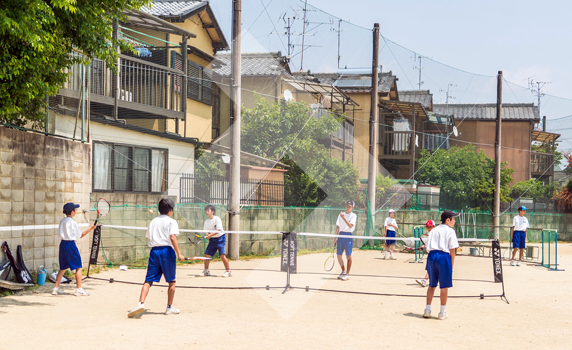Physical Education is something that every child in the UK can enjoy, or, endure, whilst they’re at school. But, often a less valued part of the curriculum, sports can sometimes fall by the wayside, and children are allowed to settle into the sedentary existence that has become so familiar to a generation who’ve been brought up surrounded by screens.
These circumstances have transformed from being a concern into being a full-on crisis. The projections in a study by Imperial College London and the World Health Organisation (WHO) have revealed that, if trends continue, more children and adolescents will be overweight than underweight by 2022. This worldwide issue is reflected in UK statistics, where 9% of four and five-year olds and 20% of ten to eleven-year-olds are classified as obese.
This obesity epidemic cannot go unaddressed. But the possible solutions are indirect and long-term. This isn’t a problem that can be solved overnight. Instead, sport and health education have to be implemented as early as possible, so a child has the opportunity to learn healthy habits before it’s too late.
We need some inspiration
Getting kids to do more exercise is easier said than done. Whilst there are plenty of roles relating to sport education in FE, primary schools are in desperate need of inspirational, committed teachers who feel passionate about physical education.
A talented and inspirational workforce would help to address this huge-scale problem. Only teachers with sufficient training and confidence will be able to bring the enthusiasm and expertise required to transform the attitude of a generation towards physical education.
Funds can be low
Sport is often bypassed in education spending. Recently, there was widespread concern, as a Sports Development Programme in Northern Ireland faced being cut after physical education funding seemed to be bypassed in a £10m investment in education.
School principal, Kevin Donaghy, was vehemently against cuts to school sports, believing that they satisfied short-term demands rather than addressing long-term needs. His concerns appear to have been shared, and luckily the endangered scheme has been salvaged, for now.
An announcement that the Curriculum Sports Programme will continue from the 1 November, through to 31 March 2018, was greeted with delight. The primary school scheme, previously assumed to be ending back in October, cost £1.3m last year, and employs 51 coaches – 27 of whom are from the IFA and 24 of whom are from Ulster GAA.
Fitness is the stuff of life
Sports education is more than just a lap of the school gym. Physical education should be a combination of setting activities and imparting vital information about how fitness might be encompassed in daily life. The aim should be to create a culture of exercise as a daily necessity, not just a weekly chore. Students should be taught about how to stay fit and healthy during their free-time.
This doesn’t mean they need to be training for the marathon. But kids can be reminded that exercise takes a variety of forms. Afterall, movement is a mindset. A child might be reticent about joining a local sports team – but exercise can be squeezed into any routine. A kid addicted to a T.V. show can be advised to do star-jumps as they watch. An adolescent can be encouraged to combine a lengthy phone-call with a brisk walk.
If a youngster absolutely hates the pool, swimming classes aren’t going to be a welcome option. But a kid doing an activity they enjoy, whether that’s football, rounders or ballet, will come to see exercise as a treat. People can make friends getting fit, and children can be encouraged to see exercise as a social activity. If going to the park with classmates becomes preferable to playing computer games, exercise will become a much more appealing prospect.
Obesity levels will only be addressed once we improve our relationship with sport and health education. We think of sport as the product of training, but it involves as much learning as the classroom subjects that are valued so highly. When children and adolescents are taught, by committed, inspirational teachers, just how important and exciting exercise can be, they will develop healthy habits that can endure well into adult life.
![]()










 Paul
Paul 




Great post and lovely sentiment! Heading straight to the root of behaviours is the best bet of changing things quickly and painlessly and your tips are a really natural way of subtly introducing new attitudes.